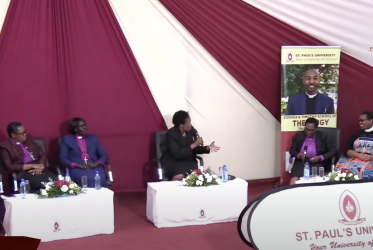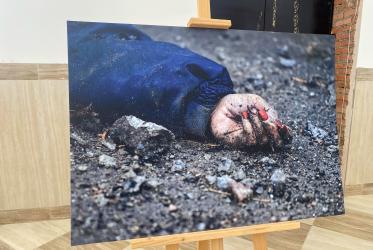Displaying 1 - 20 of 217
Is health the same for all?
17 April 2024
WCC, WHO commemorate 50 years of collaboration
04 April 2024
Voice of churches vital during UN women’s rights talks
28 March 2024
What can churches do to prevent modern slavery?
22 February 2024
As femicide cases rises, Kenyan religious leaders move to act
06 February 2024
Women and children in Gaza bearing brunt of ongoing war
16 January 2024
Tackling sexual violence in war
14 December 2023
Ellyanne Chlystun-Githae Wanjiku to COP28: “listen more to children”
13 December 2023
WCC webinar explores decolonizing beauty
11 December 2023



















